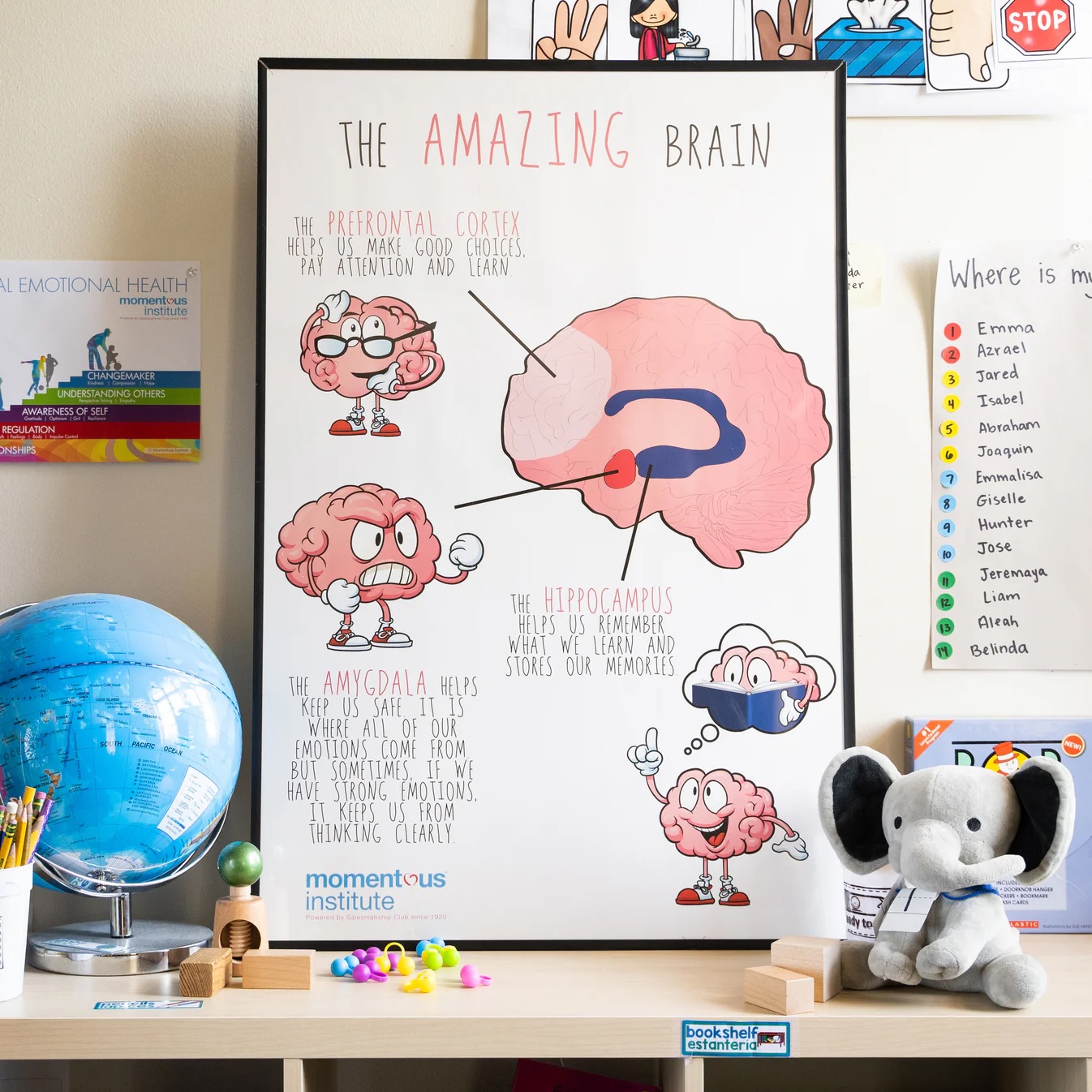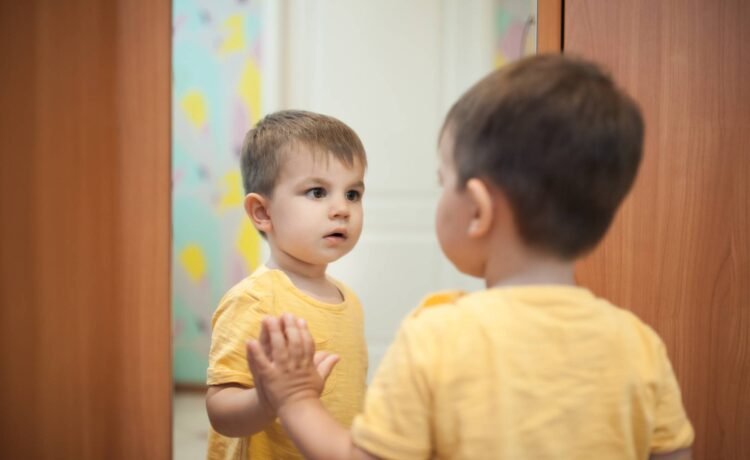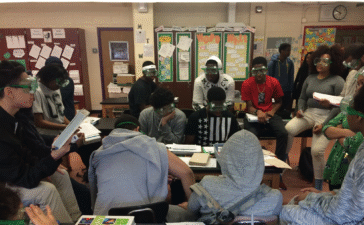“Once the kids feel they can calm themselves, even just through breathing it’s like the ‘wow’ moment,” said Rick Kinder, creator of a mindfulness program called “Wellness Works in Schools,” in an article by the Child Mind Institute.

At Momentous School, conversations about the brain continue throughout the day, as teachers can be heard encouraging students to identify their emotions or asking, “What’s your amygdala saying to you in this moment?” according to Jessica Gomez, a psychologist and executive director of Momentous Institute, the Dallas-based mental health nonprofit that operates the school. (The amygdala processes emotions in the brain.)
Through these frequent discussions and additional lessons on mental health and healthy relationships, teachers are “trying to normalize these things as part of the human condition versus something that is stigmatizing,” Gomez said. The school also holds regular parent nights to educate families on how the brain works and teach emotional regulation strategies that families can practice together at home.
Momentous School, which launched in 1997 and is funded by philanthropic donations, was developed to put into practice mental health and brain science research from Momentous Institute. A recent study by Momentous Institute and the Center for BrainHealth at the University of Texas at Dallas found this approach may be contributing to positive outcomes for graduates of the school.
These findings come at a time when lessons on emotions, relationships and social awareness, often referred to as social and emotional learning, have become a flashpoint in education and culture wars. Studies show such lessons can improve academic performance: Other researchers unaffiliated with Momentous School have also found that teaching about the brain can provide motivation for students and improve academic and social development.
As teachers and students head back to school and face new routines and social situations, now is a good time to build relationships and introduce even young students to ideas about how their brain works, Gomez said. Although many students at Momentous deal with challenges such as poverty, she believes that the school’s emphasis on mental health and brain science has helped families to better cope with those pressures.
“The point isn’t to never have stress in your life, it’s to know what to do with it,” Gomez said. “Children and parents having agency and tools helps them know how to navigate life stressors, which has a buffering effect on their brain.”
*Clarification: This story has been updated to clarify that Momentous School was developed based on research by Momentous Institute.
Contact staff writer Jackie Mader at 212-678-3562 or mader@hechingerreport.org.
This story about neuroscience in education was produced by The Hechinger Report, a nonprofit, independent news organization focused on inequality and innovation in education. Sign up for the Hechinger newsletter.
You Might Also Like
Supporting Teachers to Prevent Burnout and Finish the School Year Strong
contributed by Vivian Ivey, Principal, Aloma High School, Orlando, FL It’s no surprise that teachers are facing growing pressures. They...
Parents Trust Report Cards More Than Standardized Test Scores — With Consequences for Kids
The findings appear in a draft paper that has not yet been published in a peer-reviewed journal and may still...
How School Boards Can Bring Differing Views Together
Episode Transcript This is a computer-generated transcript. While our team has reviewed it, there may be errors. Marlena Jackson-Retondo: So...
When Difference Can School Size Make in a Student’s Life?
The longer-term picture is more sobering. Although more students enrolled in both four- and two-year colleges, small school alumni did...










